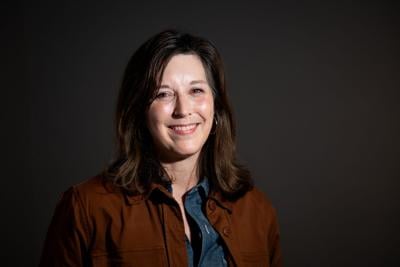Planned Parenthood offices in Tennessee ceased offering abortions in the summer of 2022 due to the state’s nearly total abortion ban, but it never stopped offering reproductive health care.
Today, that includes abortion navigation: helping people to make an appointment to get the procedure out of state and assisting with pay for travel, child care and lodging, plus other expenses. Approximately 155,000 people traveled out of state to get an abortion in 2024, according to the Guttmacher Institute.
Tennessee Advocates for Planned Parenthood — the political arm of Planned Parenthood of Tennessee and North Mississippi — announced in 2024 that it would pivot from lobbying and instead triple its investment in smaller political races. During 2024 elections, Advocates for Planned Parenthood endorsed eight Democratic incumbents as well as newcomer Shaundelle Brooks (D-Nashville), who won her race for state House District 60, and Rep. Gloria Johnson (D-Knoxville), who lost her race for U.S. Senate.
Planned Parenthood political arm announces pivot to election advocacy
In addition, the organization endorsed Williamson County-based state House candidates Claire Jones, Laura Andreson, LaRhonda Williams and Teresa Mai, as well as state Senate candidate James Dallas — each of whom lost their races.
Bills that attempted to enshrine access to contraceptives, and one that would allow providers to prescribe a 12-month supply of contraceptives at one time, failed in the state legislature this year. In addition, the state also allows abstinence-only instruction in schools.
Scene sister publication the Williamson Scene spoke to Ashley Coffield, CEO of Planned Parenthood of Tennessee and North Mississippi, in the middle of a statewide listening tour. She says the issues of abortion and contraception are entwined.
What have been some of the takeaways of the listening tour so far?
People are scared, they're angry, and they're ready to get to work. We're also finding that they see Planned Parenthood as a source of high-quality health care, and they'd like to see more of that. They're worried about health care and about health care access. They're worried about maternal health and the maternal health crisis that we have in Tennessee, and they also see Planned Parenthood as a place of hope. If Planned Parenthood is still around, then they are hopeful about the future of reproductive rights.
Last year, Tennessee Advocates for Planned Parenthood announced that it would focus more on supporting specific candidates versus general grassroots advocacy work. How has that gone, and what is your strategy for the new year?
Tennessee Advocates for Planned Parenthood, which is our 501(c)4, has always focused on grassroots organizing. Our position is that we are going to put pressure on lawmakers to return reproductive rights to Tennessee, and if you don't do that, then we're going to take your seat.
We look at the most vulnerable among them — that are in places in Tennessee where we can flip the seat — and we try to influence them. If they can't be influenced, then we support whoever's running against them who will support reproductive rights.
What would incremental change look like, if there was one piece you could add in exceptions to the state ban?
We don't work specifically on exceptions. There are other people who do that. Of course, every time there's any kind of change to the ban, we hope that it makes some impact. But our position at Planned Parenthood is that the maternal health crisis in Tennessee is catastrophic, and that we have to do more than chip away at the ban. We have to repeal it. Our agenda is major change.
What do you think is missing from the overall reproductive health care conversation?
I think that bodily autonomy is not talked about enough, and that every person and their own decisions matter. In Tennessee, we are constantly thinking about what legislators think about our bodies and what legislators will and won't do to help empower women and improve their lives. We don't think that's where the conversation needs to be. It needs to be with women, their doctors and their families.
You’ve visited rural and urban areas on your tour — what do you notice as the differences in these areas?
In Nashville, people were really honing in on our advocacy and really wanting us to invest even more in advocacy and organizing. In the rural areas, people really love the advocacy and organizing, and they were excited to be included in that conversation, but they're very worried that their absolute number one priority was health care.
The legislature made small but impactful changes related to vaccines, caregivers and WHO
One thing I’ve been noticing personally is a spread of misinformation on birth control. Is combating that part of your work?
I do think that there's a lot of misinformation around birth control, and it's really concerning to us, because it seems like it's part and parcel of the overall effort to roll back the empowerment of women that we've seen over decades. I think that's why Planned Parenthood is threatening our opposition, is because we've empowered women for decades with birth control and access to other reproductive health care.
It's 100 percent connected. All the propaganda about abortion all over the years was preparing us for this — that an abortion ban would be normal and OK. The propaganda against birth control is so shocking, but it is softening the culture for more bans on reproductive health care.
This article was first published by our sister publication, the Williamson Scene.







